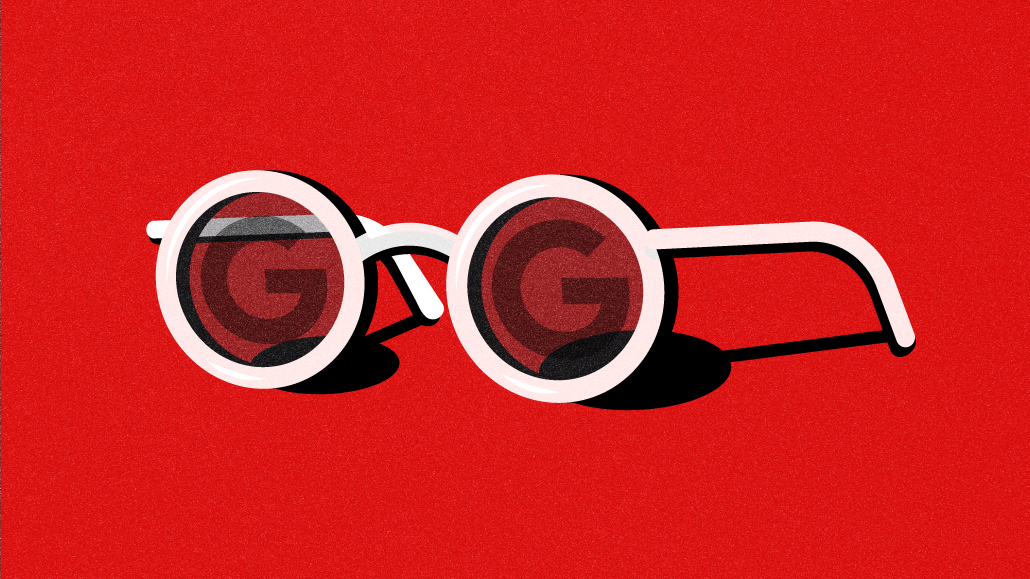Secure your place at the Digiday Media Buying Summit in Nashville, March 2-4

Google has evolved from a fledgling search startup into a supposed puppet master of the $600 billion display ad business, according to the U.S. government’s early evidence in the ongoing ad tech antitrust trial.
That’s the conclusion observers of the current case could arrive at following a week of courtroom drama. Items showcased by the Justice Department pointed to Google’s desire to “crush” any competitors, and dissenting voices were either ridiculed or silenced. (The landmark trial began Sept. 9 and continues today in federal court).
Most tellingly, it dropped the veneer of wanting to be everyone’s friend and finally came out and basically said, ‘We’re just plain better than our competition.’ That’s at least a paraphrase of what many have inferred while observing evidence and testimony from the East Virginia courtroom — not Google’s verbatim defense.
On the final day of Week 1 in court, the DOJ questioned former Google executive Chris LaSala about company decisions about whether it should reduce take rates to make them more in line with competition.
According to emails introduced by the government, LaSala advocated keeping publishers charged a take rate of around 20% on AdX, significantly above those of rival ad exchanges, with his response explaining how discounts offered by his former employer were rare.
In emails and then in his answers to the government, LaSala explained why he thought take rates should remain high. He said that giving publishers a discount was rare, even if they were experiencing monetization woes.
Other emails between Google execs noted that the 20% rate holds not because there’s a 20% value in comparing two bids but because of AdWords’ unique demand — i.e., it’s unavailable any other way. In a 2018 email submitted into evidence, LaSala was found to have written, “One might ask why the market continues to bear 20%, and maybe because AdWords brings a long tail,” with the long tail comprised of more than 1 million small and medium-sized advertisers using Google’s ad products.
Another 2018 email from LaSala mentions that Google will only be able to retain 20% its revenue-share rates because AdX mostly brings in unique demand in its display ad network, which is popularly known as GDN. He also noted that he is still convinced that is the only reason they can sustain the 20% rate rather than reduce rates like many competitors.
Earlier in the week, witnesses told the court how they were either vilified or silenced (internally) when voicing concerns over how the giant was utilizing the advantage gained via its $3.1 billion purchase of DoubleClick.
Separately, Google’s defense team broached witnesses called by the DOJ, attempting to discredit notable ad tech luminaries such as Stephanie Layser, Joshua Lowcock, and Brian O’Kelley by (metaphorically) putting their professional reputations to the sword.
In the case of Layser, she was labeled as “emotional and unproductive,” per her testimony, while lawyers attempted to frame Lowcock’s testimony—who appeared as a DOJ witness both last week and in the prior search trial—as inconsistent.
Meanwhile, Brian O’Kelley, widely regarded as one of the “godfathers of ad tech,” was deemed unqualified to comment on how the online ad business operates, per the assessment of Google’s legal team.
As far as barbs go, it doesn’t get more pointed than that.
Of course, it’s worth noting that the opening week saw the DOJ’s narrative take center stage, and Google, too, will have the opportunity to shape the thinking of Judge Leonie Brinkema, the person whose decision-making over the next four to six weeks will shape the future of the online advertising business.
During this proceeding, Google is likely to argue that its end-to-end ecosystem services work more efficiently than its rivals, many of whom don’t know how to shape an offering that’s fit for purpose. Furthermore, the defense team has pointed to Google’s rival services acquired or built by Big Tech rivals, such as Amazon Advertising or Microsoft’s 2022 purchase of Xandr.
Per its pre-trial filings, many of its competitors/critics lack the “foundation of knowledge” or “expert qualifications” to compete, let alone pass comment on how Google operates its ad empire.
As the trial continues, the veracity of Google’s criticisms of its rivals will only intensify.
More in Media

From feeds to streets: How mega influencer Haley Baylee is diversifying beyond platform algorithms
Kalil is partnering with LinkNYC to take her social media content into the real world and the streets of NYC.

‘A brand trip’: How the creator economy showed up at this year’s Super Bowl
Super Bowl 2026 had more on-the-ground brand activations and creator participation than ever, showcasing how it’s become a massive IRL moment for the creator economy.

Media Briefing: Turning scraped content into paid assets — Amazon and Microsoft build AI marketplaces
Amazon plans an AI content marketplace to join Microsoft’s efforts and pay publishers — but it relies on AI com stop scraping for free.










